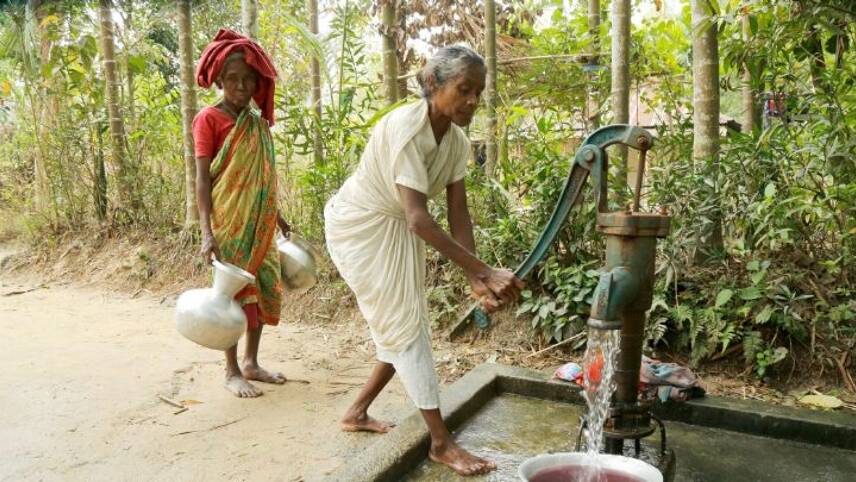Register for free and continue reading
Join our growing army of changemakers and get unlimited access to our premium content

Pictured: Women use water for washing equipment at Goolni Tea Estate in Sylhet. Photo: Abir Abdullah/WaterAid
Under the partnership, Twinings has donated £220,00 to WaterAid, in order to ensure that 30 tea-producing villages in two tea estates in India’s Darjeeling district have access to a piped water supply system.
Despite Darjeeling’s, high rainfall, freshwater is in short supply because its springs are not protected and are vulnerable to contamination.
The new water supply systems will be designed to prevent contamination and with ease of access in mind. In total, they are set to supply 4,000 residents.
WaterAid will also install new toilets and waste management systems or improve existing facilities where possible.
At present, almost half (47%) of Indian tea estate workers are estimated not to have access to potable water. Similarly, one-quarter have no access to reliable electricity, or to a flushable toilet.
In Darjeeling, the impact of this lack of infrastructure presents itself through frequent and widespread bouts of diarrhoea and other waterborne diseases, which often force tea estate workers to miss shifts, and children to miss school.
Such problems are a challenge to women in particular, because, without access to decent toilets or sanitary products, they are more at risk of infection and often have to miss work to go home and change during their periods. These issues are compounded by a low level of menstrual hygiene education and knowledge across the region.
To that end, Twinings’ investment will also be used to deliver education around water, sanitation and hygiene (WASH) in Darjeeling-based villages and schools, with a focus on menstrual and reproductive health.
“Improving access to clean water, decent toilets and good hygiene education will enable a better quality of life for the workers and their communities, with a reduced risk of waterborne disease and improved working conditions that allow women to manage their periods effectively,” WaterAid’s chief executive Tim Wainwright said.
“We aim to establish effective and sustainable systems to ensure this partnership will have long-lasting effects for thousands of people.”
A win-win situation
In addition to its initial investment, Twinings will use its partnership with WaterAid to measure the economic benefits of improved WASH infrastructure and sanitation in Darjeeling.
Projected benefits include greater productivity, fewer sick days, upskilling of workers and lower staff turnover.
WaterAid’s Wainwright said the results of this study will show other tea firms that investment in WASH “not only improves people’s lives but that of the bottom line too.”
Such benefits are currently coming to fruition through another initiative Twinings is supporting – the Ethical Tea Partnership (ETP). Founded in 1997, the ETP brings together actors from both inside and outside of the business sphere to tackle key environmental, social and ethical challenges prevalent in tea supply chains.
The ETP’s latest initiative, “Improving Lives”, is being orchestrated by Unicef, with an overarching ambition to positively benefit a quarter of a million women and children on India’s tea estates. Key to achieving this, the charity’s head of children’s rights and business Charlotte Williams recently told edie, is an approach which places people at the centre of economic, environmental and social impacts.
Sarah George


Please login or Register to leave a comment.